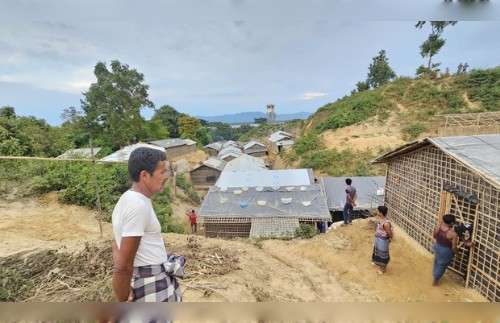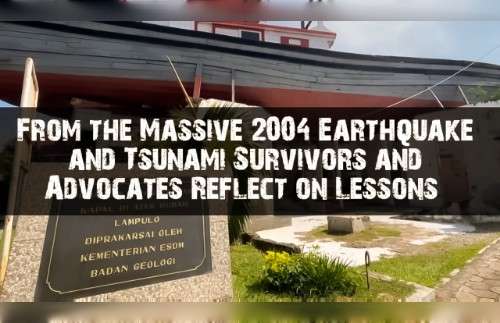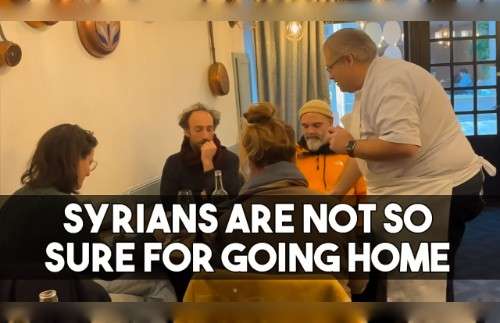Ray Sherman and Nisha David

Hundreds of Rohingya detained for two years in northern Malaysia escaped Wednesday following a pre-dawn riot, but six were killed by vehicles as they tried to cross a highway, in a tragic turn of events highlighting conditions at the country’s secretive immigrant detention centers.
Close to 400 people had been recaptured by evening, officials said, while human rights groups called for a probe into what had provoked the unrest. They also demanded to know how many detention centers, where immigrants are held indefinitely and incommunicado, were operating across the country.
“I have instructed the Royal Malaysia Police and the Immigration Department to conduct a detailed investigation of what caused them to act in such a way,” Home Minister Hamzah Zainudin said of the escapees late Wednesday. Multiple agencies from two states were working to track down more than 100 people still at large, he said.
“All 528 detainees who escaped were ethnic Rohingya refugees transferred from a camp in Langkawi after being arrested for trespassing in Malaysian waters and violating the Immigration Act in 2020,” he said. Langkawi is an island group in the Strait of Malacca, off the coast of the northern Kedah state.
Police in Bandar Baharu, Kedah were alerted to a riot and escape at the Sungai Bakap Temporary Immigration Depot at around 4 a.m., according to the state police chief, Wan Hassan Wan Ahmad.
Prior to the riot, 664 people were housed there – 430 men, 97 women, and 137 children, he said.
He told reporters that no serious injuries were reported during the riot and that its cause was under investigation. Detainees smashed a door and fence at the depot before making a run for it, he said, adding that the 23 security personnel on duty were quickly overwhelmed.
“Because there were so many of detainees in a cramped space, things got out of control and the detainees took the opportunity to break out,” he told a press conference in Kedah.
“The fatal accident involving the escapees happened about six to seven kilometers from the depot. Two men, two women, and two children (a boy, and a girl) were killed after being hit by vehicles when they tried to cross a highway while fleeing,” he said.
Villagers living near the immigration facility said they were afraid to leave their homes with escapees still at large.
“The detainees were everywhere, running out from the depot, and they headed to our village before they went into the bush,” a man who gave his name as Hashim told BenarNews.
Another villager, Ahmad Husin, said they could be hiding in nearby palm oil plantations.
Earlier, “some of them came to us looking for water because they were thirsty but no one dare to give them any because they were afraid of any untoward incident,” he told BenarNews.
The Kedah police chief warned residents of nearby villages against helping the escapees, saying to do so was an offense punishable by law.
‘Traumatizing’
Tens of thousands of Rohingya have fled to Malaysia, Thailand, Indonesia, and other countries to escape persecution in Myanmar, their home country, and dire living conditions in cramped refugee camps in Bangladesh.
Malaysia, however, does not recognize refugee status. Since 2020, the country has rounded up thousands of refugees and housed them in crowded detention centers, in what the authorities say are measures to contain the spread of coronavirus.
An estimated 180,000 UNHCR cardholders currently live in Malaysia, much higher than the estimated 38,000 in 2013.
Jerald Joseph, a member of the Malaysia’s Human Rights Commission (Suhakam), called on the country’s immigration authorities to allow representative from the United Nations High Commissioner for Refugees to meet with the detainees.
“The Immigration Department has to give access to UNHCR so they can determine whether the ones detained were really Rohingyas. If so, they should be freed like the 150,000 Rohingyas who are here in the country,” he said.
For its part, Amnesty International Malaysia demanded the government fully and transparently investigate the events “including the desperate circumstances within Sungai Bakap immigration detention center that led to detainees trying to escape, resulting in the loss of six lives.”
Suhakam should investigate how many temporary immigration detention centers are in existence across the country, Katrina Jorene Maliamauv, executive director of Amnesty International Malaysia, said in a statement.
“Conditions at these immigration detention centers should be documented, given past incidences of human rights violations in immigration depots in Malaysia,” she said. She called indefinite detention “traumatizing.”
“The government therefore needs to answer not only on the deaths of the six individuals but also why so many refugees, including children, are being detained,” she said.
Yusof Ali, chairman of Kedah Rohingya Association, also appealed to the Malaysian government “to look into the Rohingya issue detained at the Immigration Depots in the country.”
Asked why the breakout occurred, he said, “Maybe because they have been in there far too long. Some of them have temporary documents and UNHCR cards, but when they showed it to the authorities, the office in charge will arrest them and allege that the document or the card are fake.
No other countries want to accept our ethnic group. It is now up to the Malaysian government’s discretion,” he said.
Zul Suffian in Penang, Malaysia and Iskandar Zulkarnain in Kedah, Malaysia contributed to this report.
Copyright ©2015-2022, BenarNews. Used with the permission of BenarNews.













